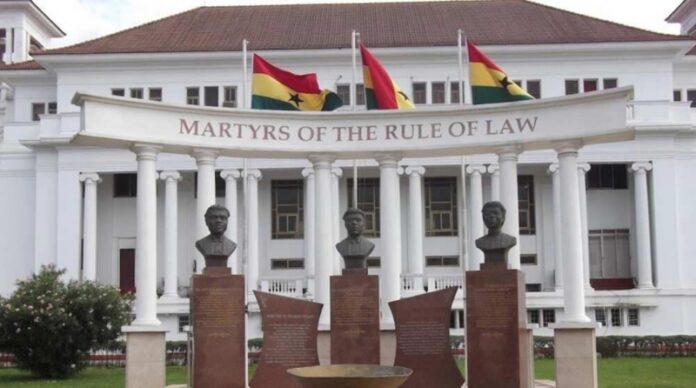The Supreme Court has granted Democracy Hub permission to file a written address as a friend of the court (amicus curiae) in the ongoing lawsuit chal
The Supreme Court has granted Democracy Hub permission to file a written address as a friend of the court (amicus curiae) in the ongoing lawsuit challenging alleged religious discrimination at Wesley Girls’ Senior High School.
In its ruling on Tuesday, the Court also directed Wesley Girls SHS, the Ghana Education Service (GES), and the Attorney-General (AG) to file responses to the plaintiff’s suit.
The case, filed in December 2024 by lawyer Shafic Osman, challenges policies at Wesley Girls SHS that allegedly restrict Muslim students from practicing essential aspects of their faith, including wearing the hijab, fasting during Ramadan, and performing other Islamic rites. Osman argues that these restrictions violate constitutional rights under the 1992 Constitution, including freedom of religion, equality before the law, and protection against discrimination.
The Attorney-General, representing Wesley Girls SHS and the GES, has defended the school’s policies, emphasizing that as an institution founded and run by the Methodist Church, it has the right to maintain its denominational identity. The AG is also seeking leave to amend its statement of case to more robustly challenge the plaintiff’s arguments.
Legal analysts note that because Wesley Girls receives public funding, its policies may need to comply with constitutional protections rather than strictly denominational traditions. Many observers describe the lawsuit as a landmark test of religious accommodation in Ghana’s mission schools, potentially influencing policies across public educational institutions.
By allowing Democracy Hub to submit written arguments, the Supreme Court has expanded civil society participation in a case that could be pivotal to religious freedom in public education. Public interest in the matter continues to grow as the country navigates the balance between denominational school traditions and the constitutional rights of students of all faiths.
